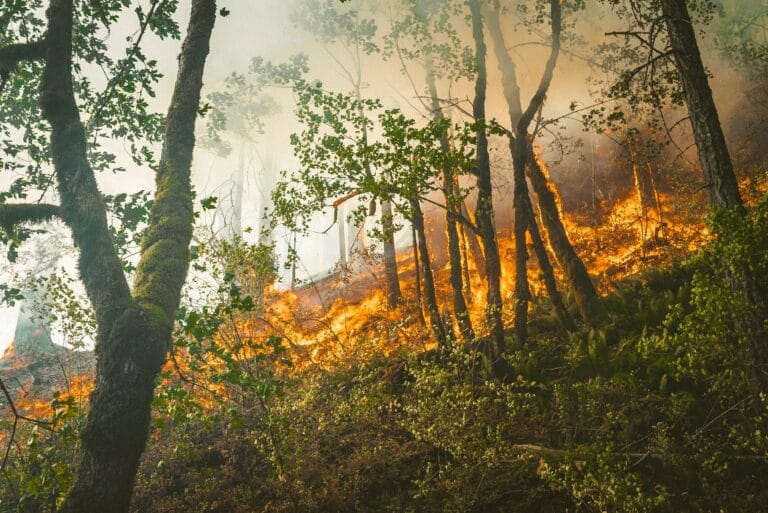A recently published report by the Royal Institute for Strategic Studies (IRES) highlights the concerning degradation of Moroccan forests. According to the experts who contributed to this document, this degradation is linked to natural and human factors, and is worsening with climate change. IRES sounds the alarm about the future of Morocco’s forest resources.
Progressive Degradation
The report, which is based on analyses by about twenty experts in forestry, climate change, and sustainable development, reveals that Moroccan forests are suffering from increased degradation due to excessive wood harvesting, both legal and illegal, that exceeds the forests’ natural regeneration capacity. An online survey conducted among experts shows that 47% of respondents consider Moroccan forests to be in a “poor or very poor” state, while 50% view them as in a “medium” state.
Factors of Degradation
Experts highlight several main causes of this degradation. Among them, overgrazing is particularly concerning. Forests provide forage resources accessible to all types of livestock, leading to overexploitation of sylvopastoral areas, exacerbated by modern agricultural practices that promote land exploitation intensification.
Illegal wood harvesting, tree topping, as well as rapid urbanization and infrastructure development are other determining factors in the degradation of forest ecosystems. Fires, pest attacks, and non-compliance with forestry regulations further aggravate the situation.
Climate Change as an Aggravating Factor
The aridification of the climate, confirmed by experts, further complicates forest management. The reduction of vegetation cover, combined with water erosion and the proliferation of pests, leads to accelerated degradation of forests. In summary, climate change and social developments significantly contribute to this crisis situation.
The State of Moroccan Forests: A Major Issue
The forest land domain in Morocco spans approximately 9 million hectares, a large portion of which belongs to the state, with 5.8 million hectares of forest formations. These forests host varied ecosystems, essential for biodiversity. However, the wooded area remains relatively low, with an average forest cover rate of only 8%, varying significantly from one region to another.
Forests: A Threatened Wealth
Moroccan forests host remarkable biodiversity, ranked second in the Mediterranean region. They play a crucial role not only environmentally but also economically and socially, providing resources and protecting biodiversity. However, these forests, which cover about 40% of the Rif and 30% of the Middle Atlas, face numerous threats that jeopardize their future.
In light of this alarming situation, the IRES report calls for sustainable management of Moroccan forests to preserve these vital ecosystems and strengthen their resilience against current environmental challenges.


